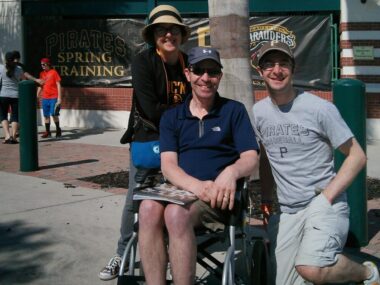Mental Visual Imagery Strategy Can Improve Neuropsychological Functions in RRMS Patients
Written by |

A new study published in the journal Restorative Neurology and Neuroscience revealed that multiple sclerosis (MS) patients with relapsing-remitting forms of the disease can improve specific neuropsychological functions through a mental visual imagery strategy. The study was led by researchers at the University of Strasbourg and the University Hospital of Strasbourg in France and is entitled “Using mental visual imagery to improve autobiographical memory and episodic future thinking in relapsing-remitting multiple sclerosis patients: A randomised-controlled trial study.”
MS is a chronic, progressive neurodegenerative disorder that results from an attack on the central nervous system (brain, spinal cord and optical nerves) by the body’s own immune system, causing inflammation and damage to the myelin layer that covers and protects neurons resulting in motor function impairment, irreversible neurological disability and paralysis. There is no cure for MS and the most frequent form of the disease is relapsing-remitting MS (RRMS), which is clinically characterized by recurring episodes of neurological symptoms. It is estimated that more than 2.3 million people in the world suffer from MS.
RRMS patients often experience a deficit in two neuropsychological functions: the autobiographical memory (AM), which helps the individual to remember personal experiences within a specific timeframe and location, and the episodic future thinking (EFT), which helps the individual imagine future personal events that might happen.
“Several functions have been attributed to AM, such as its role in the construction of sense of self temporally extended, the development of new social relationships and the nurturing of existing ones, and a directive function where the past serves as a basis to guide present and future behaviors,” explained the study’s senior author Dr. Liliann Manning in a news release. “Taken together, AM constitutes a central process in any individual’s life.” On the other hand, EFT is linked to goal achievement, coping skills, execution of intentions and to a sense of personal continuity over time.
The impairment of AM or EFT can have a negative impact on the patient’s quality of life. Based on this knowledge, researchers have tested the efficacy of a mental visual imagery (MVI)-based facilitation program in RRMS patients. The MVI program is based on the individual’s ability to mentally create scenes and pay close attention to details.
The team conducted a randomized, controlled clinical trial with 40 RRMS patients with AM/EFT impairment. Patients were divided into three groups: the experimental group with 17 patients who followed the MVI program (six MVI sessions of two hours, once or twice per week), the control verbal group with 10 patients who followed a control verbal program, and the stability group with 13 patients who underwent the AM/EFT test twice without any intervention. All participants were under regular drug therapy and being routinely evaluated for disease progression.
RELATED: Researchers Study Device to Improve Balance for MS Patients
The MVI program includes four steps: mental visualization exercises with increasing difficulty guided by a neuropsychologist, recall general features as well as more detailed ones, the adoption of a “funnel-approach” (starting with a broad focus and gradually moving to a specific subject), and learning to work in a sequential way. The purpose of including a control and stability groups in the trial was to exclude nursing and test learning effects.
Researchers found a significant improvement in AM and EFT performance in RRMS patients only in the experimental group under the MVI program. This effect was found to offer robust long-term clinical benefits, with patients indicating an effective MVI strategy transfer to their daily life, resulting in a greater self-confidence feeling and higher levels of vitality and control.
The research team concluded that training RRMS patients in MVI can improve the cognitive process of scene construction common to both AM and EFT neuropsychological functions. “In summary, the major finding of this study is that AM and EFT impairment could be efficiently improved by means of a facilitation program and that the use of an MVI strategy seemed easily integrated and resulted in significant benefits in their daily life functioning. More generally, we hope that this study and its positive outcomes could encourage future investigations in different clinical settings,” concluded Dr. Manning.

